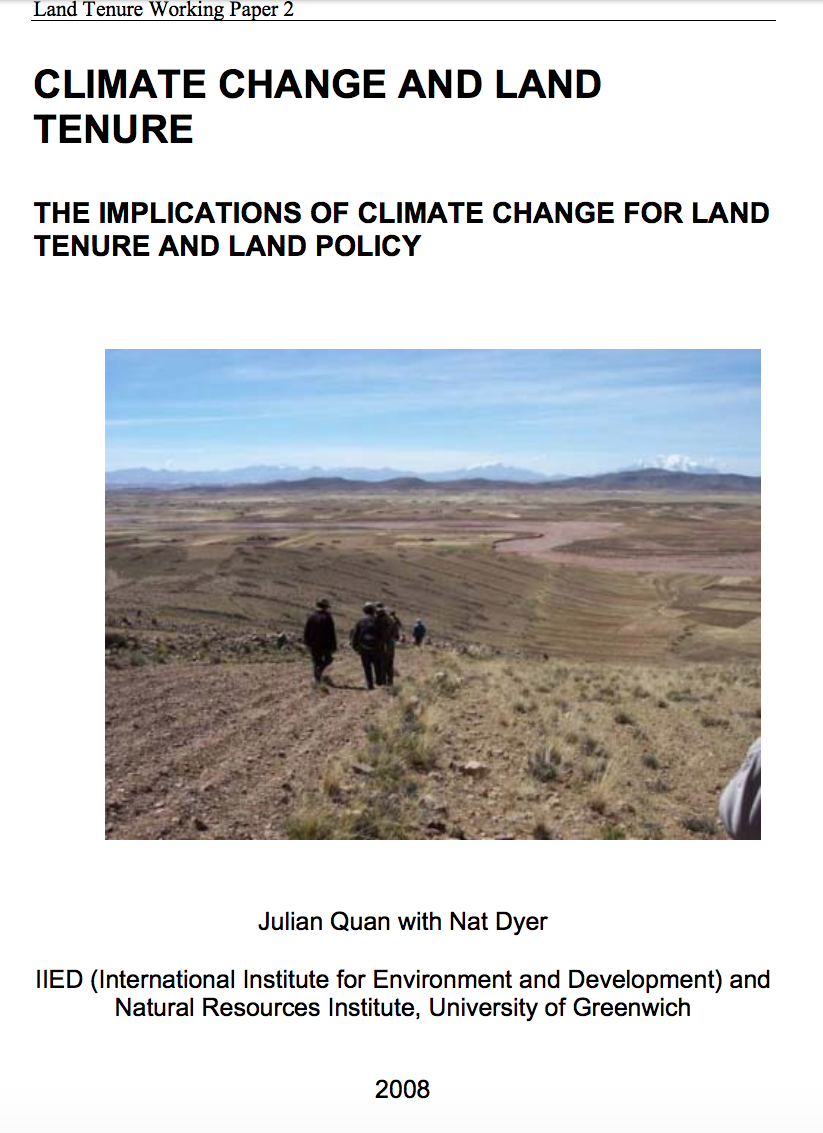Focal point
Location
The Food and Agriculture Organization of the United Nations leads international efforts to defeat hunger. Serving both developed and developing countries, FAO acts as a neutral forum where all nations meet as equals to negotiate agreements and debate policy. FAO is also a source of knowledge and information. We help developing countries and countries in transition modernize and improve agriculture, forestry and fisheries practices and ensure good nutrition for all. Since our founding in 1945, we have focused special attention on developing rural areas, home to 70 percent of the world's poor and hungry people.
Members:
Resources
Displaying 2966 - 2970 of 5074Land reform: Land settlement and cooperatives
The articles in this volume supplement FAO Land Tenure Studies 10, Compulsory acquisition of land and compensation. The latter publication explains what compulsory acquisition and compensation are and what constitutes good practice in this area. This current volumes introductory article provides an overview of these issues. The issue of compulsory acquisition from a human rights perspective is also addressed here as are the concepts of market value, compensation value and just terms compensation.
Compulsory acquisition of land and compensation
Countries retain powers of compulsory acquisition in order to enable governments to acquire land for specific purposes. The nature of these powers and the ways in which they are used are invariably sensitive and have wide implications, including from the perspective of international agreements on human rights and their national expressions. Compulsory acquisition is disruptive for those who are affected and whose land is taken and, if done poorly, will have serious negative impacts on people and their livelihoods.
Harmonized world soil database ( Version1.0)
Soil information, from the global to the local scale, has often been the one missing biophysical information layer, the absence
Empleo y condiciones de trabajo de mujeres temporeras agrícolas
En 2008, Naciones Unidas incluyó entre los Objetivos de Desarrollo del Milenio una nueva Meta del Milenio (1.B) que propone “lograr el empleo pleno y productivo y el trabajo decente para todos, en particular para las mujeres y los jóvenes”, subrayando la importancia del empleo en la superación de la pobreza y en la mejora de las condiciones de vida de la población.
Climate Change and Land Tenure
This document analyzes the implications for land tenure and land policy of climate change. It assesses the implications of ongoing anthropogenic climate change resulting from greenhouse gas emissions for land tenure and the role that land policy can play in climate change adaptation planning in the developing world; it also sets out a simple framework for tracing the linkages between climate change, impacts on land use systems, and the land tenure implications, including those which result from adaptation and mitigation responses to global warming.








